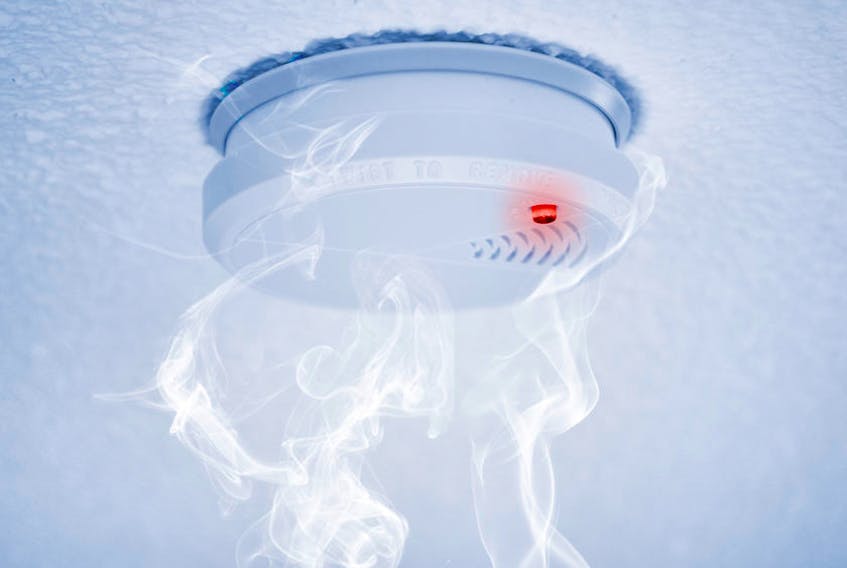Safety is something most Canadians take for granted. We are fortunate to live in one of the best countries in the world with a high standard of living, a relatively low crime rate, decent housing and well-developed systems and organizations to respond in the event of an emergency.
Most of us feel confident that if something serious goes wrong, there will be resources to deal with the problem, provide rescue or relief as needed and help get us back on our feet if we suffer a loss of property or possessions.

While this is a great comfort, such resources are often not enough to deal with some emergencies, and we can certainly do a better job of preparing ourselves for what we hope will never happen to us.
The topic is foremost in my mind because Oct. 6-12 is Fire Prevention Week in this country. One of the main messages being promoted by the National Fire Protection Association is to encourage Canadians to plan and practise the escape plan from their homes.
I sit on the Occupational Health and Safety (OHS) committee at my workplace and one of the things we do regularly throughout the year is have fire drills as required by OHS statutes. I suspect most of us who work in larger workplaces have similar procedures. But I wonder: how many of us make the time to apply this crucial safety preventative measure at home, to help protect those we love the most?
Even with regular fire drills, we still find ways to improve and when it comes to fire, seconds can make the difference between life and death. When we hear a fire alarm, our heart starts to race. For many of us, logical thought goes out the window as our brain goes into crisis mode. Having regularly practised where to go to get out safely is vital when this occurs. With modern building styles and furniture built with synthetic materials that may burn more fiercely, it’s only a short time before the air becomes toxic and it is too late to escape.
My heart goes out to a family from this region who know all too well how quickly fire in our modern homes can destroy a family. The Barho family came to Canada from Syria a little over two years ago to find a safe place to live, and settled just outside Halifax. In February, this sense of safety was shattered by a house fire that claimed the lives of all seven children and left the father severely burned. From what was reported, the mother came downstairs to get a bottle for the baby and found the couch on fire. She alerted her husband who sent her next door for help while he attempted to put out the fire and get his children, sleeping upstairs, to safety; tragically, the fire spread so rapidly he was unable to do so and all the children perished in their bedrooms.
We don't know if this family had ever practised a fire drill, and it isn’t my intention to criticize anyone if such were the case. We can't know the pain and heartache they have experienced over the loss of their children, and I trust the services I referenced above, along with the community around them, are helping them find a way through this tragedy.
I do hope that focusing on this tragedy can bring attention to how crucial it is for all of us to develop and practise escape plans from our homes in the event of a house fire. As this week stresses, prevention is a critical component of how we deal with fire. While we can't prevent all fire tragedies, we can reduce the loss of life if we are prepared.
We appreciate the safety this country provides, and we have a role to play to ensure there is the same safety in our own homes and lives.
Brian Hodder is an LGBTQ2 activist and works in the field of mental health and addictions. He can be reached at [email protected]








